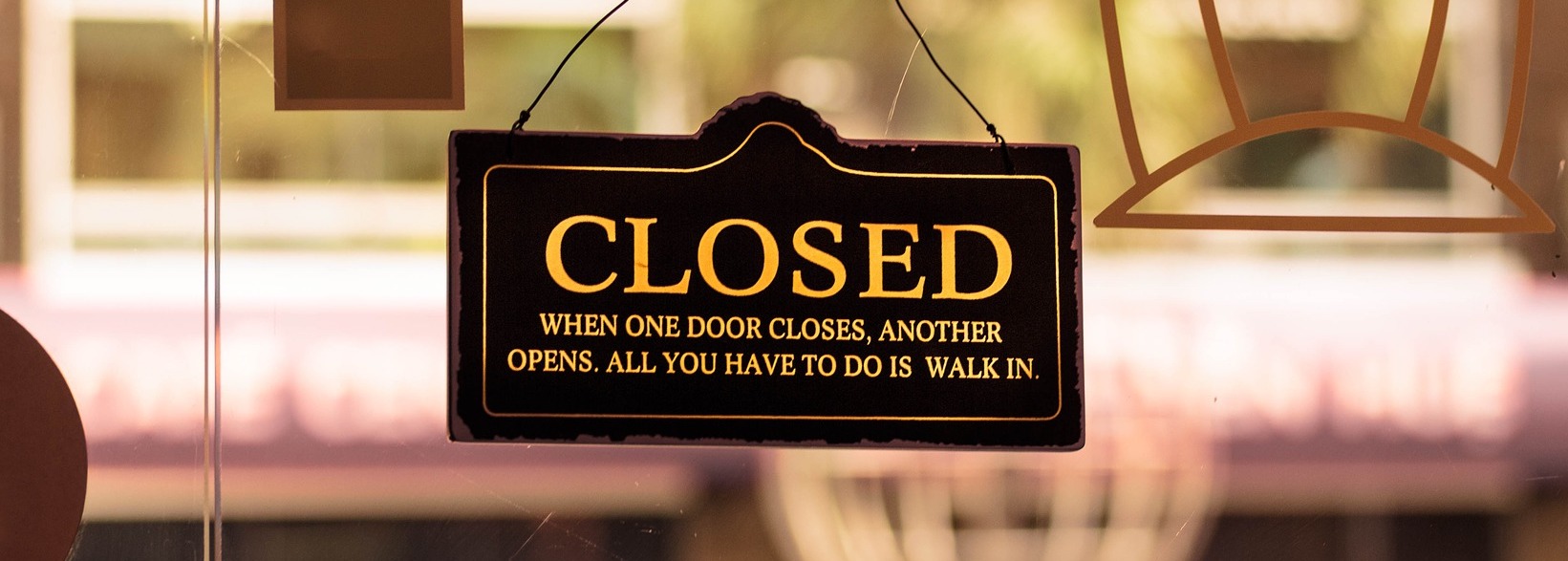I sit here, looking out over the darkness of Victoria Park and the lights of the Hong Kong skyline. The same lights as those I looked at writing the previous edition of Maxand’s Insights early March, now some 4 weeks ago. They beam a sense of normality across the bay. Soothing. Comforting. And yet, beyond those lights is a world that just isn’t the same.
I wonder how all of you are. Is your life still the same as it was a few weeks or months ago? Or has it changed beyond recognition, perhaps without any hope of returning to what it was before?
This month’s Insight, or rather this month’s Time-out, focuses on discovering what you want in a world that has changed for so many of us. It aims to help you focus, especially when your life has in some way turned upside-down. It also aims to help you explore – if and when there’s some level of stability in your life – whether the current situation holds any hidden opportunities in discovering what you want.
1. When your life has in some way turned up-side down
For many of us, the Covid-19 pandemic has had, and will continue to have, some kind of direct or indirect impact. You may be facing a whole range of different challenges right now, at this very moment. Like finding ways to stay healthy while you’re locked indoors for weeks on end. Perhaps you’ve fallen ill yourself or lost someone to the virus. You may be in the front-lines as a nurse or doctor trying to save people. Or perhaps you’re trying desperately to find a source of income and food or a way home to loved ones.
In these life-changing circumstances, let me start by highlighting a number of key things to focus on (for additional information, also see the article “When life as you know it ceases to exist: How to face the face the challenging mix of priorities in life-changing conditions“):
- steadying yourself
- coping with what you’ve lost
- taking steps towards the future
A. First and foremost, steady yourself!
If you have basic needs that aren’t being met, such as access to food and clean water, sanitation, a safe place to stay and a source of income/savings to meet these needs, focus on those first first.
Try to look after yourself physically and mentally. Apart from adequate nutrition and personal hygiene, try to get enough sleep and if possible some form of regular exercise. Of course, protect yourself and your loved ones from attracting Covid-19 as best you can. If you think or know you’ve attracted the virus, try to seek medical care if needed and – if at all possible – practice social distancing to avoid infecting others. In general, if you are not entirely sure that the information you have access to is reliable and complete, do use the guidance provided by the World Health Organisation.
To look after your own mental health, try to maintain some form of structure in your days to help yourself stay anchored and keep your spirits up. Avoid watching Covid-19 news all the time. While it is of course important to stay informed, your brain will continuously pick up on signals of danger and elicit the activation of so-called stress hormones.¹ Over a longer period of time, such hormones can have a negative impact on – for example – your emotional balance and the functioning of your immune system. So, instead of watching the news all the time, try to distract yourself and do something else (also see section 2 below).
Find a way to connect with other people on a regular basis, if need be virtually. Stay in touch with friends and family. Or neighbours around you who are going through the same ordeal. Whatever you do, remember that you’re not alone and that there may be people out there who can give you emotional and practical support, or who may find comfort in support you can give them.
Lastly, be mindful of the things you’re grateful for, both in the current moment as well as those you’ve come to appreciate more because of what’s happening today.
B. Cope with what you have lost
You may have lost something or someone. Your job. A loved one. Your health. The freedom to move around without any constraints and meet others. Your personal sense of safety.
What you’ve lost may be temporary, but it may also be final. It may have come gradually, but it may also have hit you without warning. It may be easy to deal with, or it may be the most difficult thing you’ve ever faced in your life.
When you’ve lost something or someone dear to you, it’s important to find a way to grieve. We each mourn a loss in our own specific way, depending on who we are, what/who we lost and in what circumstances. Mourning is highly personal and also dependent on cultural context. If you’ve experienced a loss that has a significant impact and you’d like to have some more guidance on how to find your own way in mourning, have a look at the article “When life as you know it ceases to exist“.
C. Take steps towards the future
Steadying yourself and finding ways to cope with what you’ve lost help you create the right conditions to start taking steps towards the future.
Yet, it’s hard to predict how the Covid-19 pandemic will develop over time and how it will affect different parts of the world. On top of the pandemic itself, the expected economic, social and political impact will be with us for quite some time to come. But again, it’s not easy to determine what this may look like.
This lack of predictability and the bleak outlook in general may get in the way of determining next steps, especially if you’re on a journey to discover what you want. And yet, for all the challenges and hardship this pandemic brings, there may be hidden opportunities to explore.

2. Exploring hidden opportunities to discover what you want
Some of us are blessed with a positive, hopeful and optimistic outlook on life. If this is you, you may immediately see different kinds of opportunities and silver linings in the situation as it evolves.
However, for many of us, this doesn’t come so naturally. Instead, a change in life circumstances like this may come with emotions like bewilderment, sadness, anger, resentment or feelings of lethargy. It may then not be so easy to consider any possible positive outcomes or hidden opportunities in the current situation.
Below are some steps to help you explore any hidden opportunities in discovering what you want.
A. Step 1: Accept what you’re experiencing naturally
First of all, if you’re experiencing negative emotions and thoughts, try to acknowledge and accept what you’re feeling. Don’t feel bad about feeling bad! After all, this is a challenging situation and change is far less easy to deal with if it’s something that was forced upon us. Especially if it came abruptly. Be kind to yourself.
If you feel a bit lost in negative thoughts and emotions, you may find it helpful to talk things through with someone you trust or to write about what you’re experiencing (have a look at the article “Burning through the fog in your mind” for an easy technique you can use).
B. Step 2: Turning towards opportunities
While acknowledging and accepting your natural thoughts and feelings, also realise that they don’t define you for the full 100%. You still have the ability to consciously explore other directions, away from the thoughts and feelings you’re having.
Take a piece of paper and a pen and find a place where you can write and ideally have some time to yourself to reflect. Now, to prepare yourself, realise that in a situation like this, it’s usually very easy to think of threats and negative impacts. Let those be for now. Agree with yourself that for the next 10 minutes you’ll only focus on any positive things that could possibly come out of the situation you’re now in. Here are 3 real-life examples to get your creativity going:
-
- “I’m now in a very different situation than I would normally be, and it gives me opportunities to do things I would otherwise never have tried or learned. I have started learning to cook and to connect with my neighbours in another way (didn’t really know them before!). I have discovered that I actually enjoy exercising at home! I’ll stick to doing that! Would now like to try other things, like starting to learn Chinese by taking online classes.”
- “I have always been worried people would judge me for starting a completely different job, but Covid-19 has given me a perfect “excuse” because so many people have to switch jobs now. I am just one of many, and I don’t feel uncomfortable switching now. I’m now investigating where they need people (like volunteers or maybe even a paid job) during this crisis and simply try something new!”
- “I’ve never really realised how important my family is to me, but this crisis has really made me feel that and it’s made it so much easier for me to make decisions on what to do next in finding a new balance in my life.”
At this point, don’t worry about whether opportunities seem realistic or not. Focus on generating as many ideas as possible. Once the 10 minutes are over, put the list aside and keep it in a safe place. Try to do this once or twice a week, adding more and more ideas to your existing list (or more often if you find it helpful).
After 3 or 4 times of writing down ideas, look at the potential opportunities on your list. Which items resonate with you most strongly? Are there any steps you could possibly take, even small steps, to make the most of that opportunity or to explore it further? If there are, take them and see what it brings you in terms of discovering what you want. Keep exploring …
Then use the things you’ve learned in this process to either start exploring even more additional ideas or to start steering your life in a specific direction if you happen to have discovered which way you’d like to go.²
Footnotes
1. For recent research into experienced stress and the impact on physical and mental health, have a look at for example (a) BrainFacts at www.brainfacts.org, (b) the Dana Foundation at www.dana.org, and (c) SharpBrains at www.sharpbrains.com. Also see the earlier Maxand’s Insight focusing on the basic functioning of the human brain: “Meet your biggest ally: Your brain“.
2. In time, when the situation allows, you may find it helpful to have a look at the articles “Discovering what you want: Small and simple things to start with today” and “Taking charge of the direction your life is taking – A stepwise method“.
